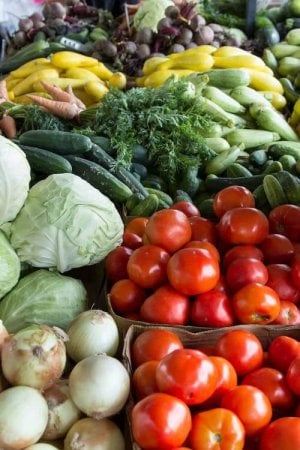Is your diet putting you at risk? Find out which foods are ultra-processed and how to avoid them
- Replies 9
It seems like there's a new study every other day warning us of the dangers of consuming too many biscuits, cakes, and chips.
These processed foods are a delight to snack on, but apparently, indulging can lead to a whole host of related health issues.
For example, ultra-processed foods have been found by one study to be linked to dementia.
But what are ultra-processed foods in the first place?
Let’s start with what processing is.
In the context of food, processing means ways of making food suitable for consumption such as salting or curing meat.
Nutritionists have classified processed foods into three categories based on the degree to which they have been treated.
Minimally Processed Foods

Minimally processed foods are items like fruit, vegetables, milk, and meat that require little to no treatment to be consumed.
These are easily among the healthiest food items due to their unaltered states.
Processed Foods
Processed food items are consumables that have seen marked changes to their natural states.
This classification includes familiar foods like bread (processed wheat), cheese (processed milk), soft drinks (processed sugar and water), and ready-to-eat meals.
Processed foods are best consumed in moderation, as excess has been linked to illnesses like diabetes and heart disease.
Ultra-Processed Foods
Ultra-processed foods as defined by the Deakin University Food & Mood Centre are food items derived from the extraction of compounds that contain five or more ingredients and synthetic additions and no wholefood components.
‘Put simply, these foods are made in factories, are highly refined, and contain little, if any, intact food.’ the centre said.
These foods, which also include fast food, mass-produced bread, ready-made meals, biscuits, fruit drinks, and lollies, are notorious for containing high amounts of sugars and saturated fats and salt.
What’s more, they’re also usually low in nutrients, proteins, and fibres.
To add another distinction from processed foods, think of ultra-processed food as something that needs high-tech equipment and massive amounts of ingredients to produce.
Almost half of Australian diets are said to come from ultra-processed food, which has many experts alarmed.
Findings from a Deakin University analysis revealed that there was a great degree of association between high ultra-processed foods consumption and the occurrence of diseases like obesity, metabolic issues, cancer, cardiovascular disease, depression, and overall likelihood of death (in adults).
Another study done in the US also found that pregnant mums who had a high ultra-processed food intake were 26 per cent more likely to give birth to obese children.
Overall, the picture isn’t looking good for many of us considering how prevalent processed and ultra-processed foods are in our daily lives.
A simple glance at your average supermarket aisle would probably reveal that most, if not all, of what we eat goes through many stages of processing before it ends up on our tables.

So… what can we do?
For starters, it’s best to watch your intake.
Food Standards Australia New Zealand (FSANZ) recommends limiting the consumption of foods high in sugar and salt for better health and at the same time ensuring a larger intake of unprocessed or minimally processed foods like fruits and veggies.
There’s also the Australian Dietary Guidelines we can count on for a general idea of how to eat healthy using five food groups to meet daily nutrient requirements.
Diabetes Australia even takes things a step further and advises to do away with ultra-processed food in your cupboards and not buy them!
Out of sight, out of mind, right?
And lastly: check the label! FSANZ stresses that reading the label of food items can help Aussies have more power over their nutritional intake.
Now, it can get quite overwhelming to read food labels — luckily, there’s a guide to help us navigate through all the numbers and grams.
Off the top of your head: how much of your diet consists of ultra-processed foods? Are you looking to reduce your consumption, or is it something you don’t feel strongly about?
Share your thoughts and opinions below!
Source: YouTube/BBC
These processed foods are a delight to snack on, but apparently, indulging can lead to a whole host of related health issues.
For example, ultra-processed foods have been found by one study to be linked to dementia.
But what are ultra-processed foods in the first place?
Let’s start with what processing is.
In the context of food, processing means ways of making food suitable for consumption such as salting or curing meat.
Nutritionists have classified processed foods into three categories based on the degree to which they have been treated.
Minimally Processed Foods

Foods like fruit and vegetables that see minimal processing are healthy. Stock Image Credit: Pexels/Mark Stebnicki
Minimally processed foods are items like fruit, vegetables, milk, and meat that require little to no treatment to be consumed.
These are easily among the healthiest food items due to their unaltered states.
Processed Foods
Processed food items are consumables that have seen marked changes to their natural states.
This classification includes familiar foods like bread (processed wheat), cheese (processed milk), soft drinks (processed sugar and water), and ready-to-eat meals.
Processed foods are best consumed in moderation, as excess has been linked to illnesses like diabetes and heart disease.
Ultra-Processed Foods
Ultra-processed foods as defined by the Deakin University Food & Mood Centre are food items derived from the extraction of compounds that contain five or more ingredients and synthetic additions and no wholefood components.
‘Put simply, these foods are made in factories, are highly refined, and contain little, if any, intact food.’ the centre said.
These foods, which also include fast food, mass-produced bread, ready-made meals, biscuits, fruit drinks, and lollies, are notorious for containing high amounts of sugars and saturated fats and salt.
What’s more, they’re also usually low in nutrients, proteins, and fibres.
To add another distinction from processed foods, think of ultra-processed food as something that needs high-tech equipment and massive amounts of ingredients to produce.
Almost half of Australian diets are said to come from ultra-processed food, which has many experts alarmed.
Findings from a Deakin University analysis revealed that there was a great degree of association between high ultra-processed foods consumption and the occurrence of diseases like obesity, metabolic issues, cancer, cardiovascular disease, depression, and overall likelihood of death (in adults).
Another study done in the US also found that pregnant mums who had a high ultra-processed food intake were 26 per cent more likely to give birth to obese children.
Overall, the picture isn’t looking good for many of us considering how prevalent processed and ultra-processed foods are in our daily lives.
A simple glance at your average supermarket aisle would probably reveal that most, if not all, of what we eat goes through many stages of processing before it ends up on our tables.

Processed and ultra-processed funds are a common sight in Aussie supermarket shelves. Screengrab Credit: YouTube/9 News Australia
So… what can we do?
For starters, it’s best to watch your intake.
Food Standards Australia New Zealand (FSANZ) recommends limiting the consumption of foods high in sugar and salt for better health and at the same time ensuring a larger intake of unprocessed or minimally processed foods like fruits and veggies.
There’s also the Australian Dietary Guidelines we can count on for a general idea of how to eat healthy using five food groups to meet daily nutrient requirements.
Diabetes Australia even takes things a step further and advises to do away with ultra-processed food in your cupboards and not buy them!
Out of sight, out of mind, right?
And lastly: check the label! FSANZ stresses that reading the label of food items can help Aussies have more power over their nutritional intake.
Now, it can get quite overwhelming to read food labels — luckily, there’s a guide to help us navigate through all the numbers and grams.
Off the top of your head: how much of your diet consists of ultra-processed foods? Are you looking to reduce your consumption, or is it something you don’t feel strongly about?
Share your thoughts and opinions below!
Source: YouTube/BBC









